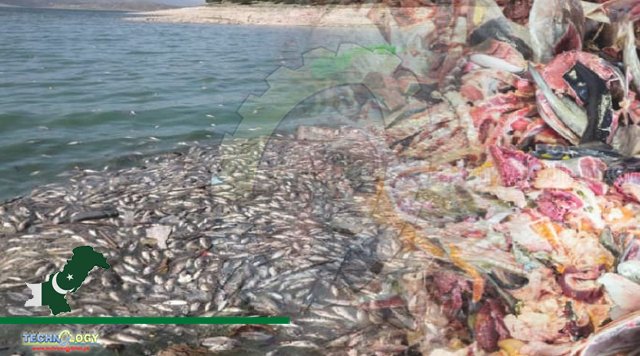Budding engineers of the NED University claim to have produced ” bio-diesel from fish waste” which, they say, could not only mitigate air and marine pollution but also save foreign exchange spent on import of expensive diesel.

The feat was achieved by a group of final year students from the Mechanical Engineering Department, including Muhammad Absar Ahmed, Zaki Ahmed, Talha Ahmed, and Huzaifa Iftikhar, under the supervision of Dr. Mehmood Ali, head of Environmental Engineering Department, within two months. “Plant components are used to produce bio diesel, but we chose to use fish waste and entrails for the first time because it is readily available in bulk,” researcher Absar said while speaking that “In Pakistan, one million tons of fish and seafood is consumed annually which produces 350,000 tons of waste,” he further said, adding that this waste is dumped into the sea which pollutes the sea. bio-diesel from fish waste, Absar further claimed that the 350,000 tons of fish waste could be used to produce 150,000 tons of oil or 100,000 tons of bio diesel which could be mixed with up to 20% of diesel produced in the refineries. “This will not only help in protecting environment but will also save foreign exchange required for import of diesel and crude oil,” he added.
Dr. Mehmood Ali said that a processing plant set up on a trial basis for producing bio diesel could be energized through solar power to further reduce the cost. “This plant has been indigenously designed and developed by the Environmental Department which could process 10 litres of oil to convert it into bio diesel within three hours,”. bio-diesel from fish waste, “This machine has been manufactured within two months at a cost of Rs.100,000.” Dr. Ali claimed that the bio diesel produced from fish waste is 12-13% cheaper than the diesel refined by refineries. “This experiment was conducted on a 10-litre batch process. If it was processed on a pilot basis on a solar-powered unit of up to 100-litre capacity, the cost of this bio diesel can be reduced by 20-25% compared to conventional diesel,” he added. Dr. Ali declared that the calorific value of bio diesel produced from fish waste is equivalent to that of normal diesel and the carbon components released from it are re-incorporated into environment through the kilo carbon cycle without harming environment. He claimed that Pakistan could save $1.73 billion annually by producing bio diesel from fish waste/entrails. According to official statistics, Pakistan spent $17.3 billion on diesel import last year. If 350,000 tons of fish waste available in Pakistan is processed to produce 100,000 tons of bio diesels, then the import of diesel will be cut down by 100,000 tons, which will save $1.73 billion. “The glycerin formed during this process can also be used for industrial purposes,” Dr. Ali said, while adding that the NED University is ready to provide designs and technical support to investors. A plant with a limited capacity of 10 litres will convert one litre of oil into bio diesel at a cost of Rs.180-190 – all costs inclusive. If the private sector installs a large plant with bigger capacity, then this cost could be substantially reduced and the production cost of bio diesel could be significantly brought down.
Source: This news is originally published by tribune